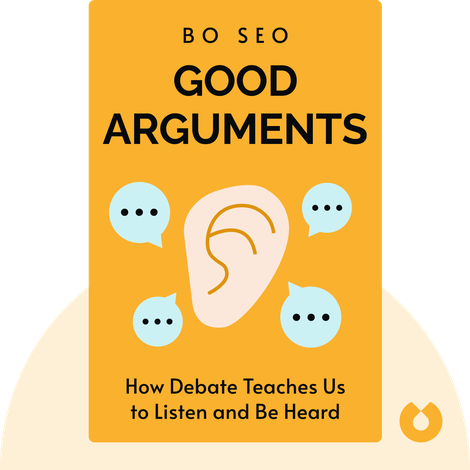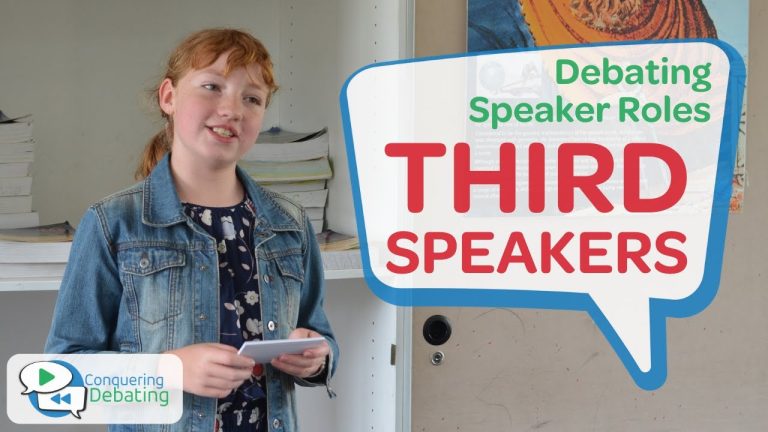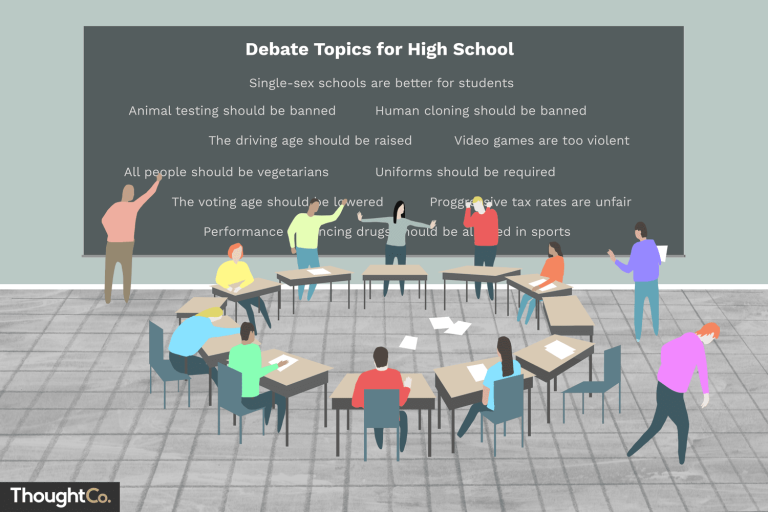What is the Key to a Good Debate? Mastering Persuasion Skills
The key to a good debate is preparation and effective communication. Debaters need to understand their topic and present their points clearly.
Debating is more than just arguing. It’s about presenting your ideas in a clear, convincing way. Good debates require solid research. This means knowing the facts and understanding different viewpoints. Effective communication is also crucial. You must articulate your ideas well and listen to others.
Respecting your opponent’s perspective is important too. It shows maturity and enhances your credibility. Good debaters also stay calm under pressure. They think quickly and respond thoughtfully. In essence, preparation and effective communication are the backbone of a successful debate. Understanding these elements can help anyone improve their debating skills.

Credit: www.instagram.com
Crafting A Compelling Argument
A good debate hinges on presenting clear, well-supported arguments and actively listening to opposing views. It’s vital to stay focused, respectful, and open-minded to create a compelling discussion.
Crafting a compelling argument is crucial for a good debate. It involves presenting your points clearly and persuasively. This is achieved by carefully selecting evidence and structuring your arguments logically. Let’s explore how to do this effectively.Choosing Strong Evidence
Strong evidence supports your argument and convinces your audience. Use facts, statistics, and expert opinions. Make sure your evidence is relevant and reliable. Avoid using outdated or biased sources. Always double-check the credibility of your information. This builds trust with your audience.Structuring Your Points
A well-structured argument is easier to follow. Start with a clear statement of your main point. Follow with supporting evidence. Organize your points logically. Use short sentences and simple words. This keeps your audience engaged. End with a strong conclusion that reinforces your argument. Structure is key to a compelling argument.
Credit: www.goodmorningamerica.com
Understanding Your Audience
Understanding your audience is crucial in any debate. Knowing who you are speaking to helps tailor your message. This ensures that it resonates and engages effectively. Let’s explore how to identify audience beliefs and adapt your message accordingly.
Identifying Audience Beliefs
Start by researching your audience. Understand their values, interests, and concerns. Are they conservative or liberal? Do they value tradition or innovation? Knowing these details helps you frame your argument.
Listen to their conversations. Pay attention to the language they use. Notice the topics that spark their interest. This insight will guide your approach and allow you to connect better.
Use surveys or polls. These tools gather direct feedback from your audience. They reveal what matters most to them. With this information, you can craft a message that aligns with their beliefs.
Adapting Your Message
Once you know your audience, adjust your message accordingly. Use language that they understand. Avoid jargon or complex terms. Simple words make your point clearer.
Highlight shared values. Show that you understand their perspective. This builds trust and rapport. People are more likely to listen to someone who respects their views.
Be flexible. Sometimes, you need to adjust your stance slightly. This doesn’t mean changing your core beliefs. It’s about finding common ground. This makes your argument more persuasive.
Remember to be respectful. Even if you disagree, show empathy. Respectful discourse fosters a productive debate. It encourages open-mindedness and mutual understanding.
Effective Communication Techniques
Effective communication techniques are crucial for a good debate. These techniques help convey your points clearly and persuasively. By mastering these skills, you can ensure your arguments are understood and respected by your audience.
Using Clear Language
Clear language is essential in a debate. It helps avoid misunderstandings and keeps your audience engaged. Use simple words and short sentences. Avoid jargon and complex terms. This makes your arguments easier to follow and more convincing.
Here are some tips for using clear language:
- Be concise: Get to the point quickly.
- Use familiar words: Choose words your audience knows.
- Avoid filler words: Cut out unnecessary words.
- Use examples: Illustrate your points with relatable examples.
Engaging Body Language
Body language plays a vital role in communication. It can reinforce your words and express confidence. Good body language can make your arguments more persuasive.
Consider these tips for effective body language:
- Maintain eye contact: It shows confidence and keeps the audience engaged.
- Use gestures: Hand movements can emphasize your points.
- Stand upright: Good posture conveys authority.
- Smile: A friendly expression can make you more relatable.
Both clear language and engaging body language are keys to a successful debate. They help you connect with your audience and make your arguments more impactful.

Credit: sloanreview.mit.edu
Handling Counterarguments
Handling counterarguments is crucial in a good debate. It shows your depth of understanding. It also enhances your credibility. Mastering this skill involves anticipating objections and responding with confidence. Let’s dive into these aspects.
Anticipating Objections
Anticipating objections means thinking about what your opponent might say. Predict their counterpoints. Plan your responses. This approach prepares you for the debate. It also shows you have considered different perspectives.
Research common arguments against your position. Note them down. Develop clear and concise rebuttals. Practice delivering these points. This preparation builds your confidence. It ensures you remain calm and composed during the debate.
Responding With Confidence
Responding with confidence is key in a debate. Your delivery matters. Speak clearly. Maintain eye contact. Show you believe in your argument. Confidence can sway your audience. It can make your points more persuasive.
Listen carefully to your opponent’s arguments. Take a moment to think before you respond. This shows you are considerate and thoughtful. Address their points directly. Don’t avoid or dismiss them. Provide evidence to support your rebuttal.
Remember, a good debate is not just about proving your side. It’s also about engaging with the other side’s arguments. Show respect. This approach makes your case stronger. It also enhances your credibility.
Frequently Asked Questions
What Makes A Good Debate?
A good debate needs clear arguments, respect, and listening skills. Stay focused. Avoid personal attacks.
How Can I Improve My Debating Skills?
Practice speaking clearly. Research your topics well. Listen and respond calmly. Respect your opponent’s views.
Why Is Listening Important In A Debate?
Listening helps you understand the opponent’s points. It allows you to respond accurately and build stronger arguments.
Conclusion
A good debate hinges on respect, listening, and clear communication. Respect your opponent’s views. Listen actively to understand their points. Communicate your arguments clearly and confidently. Stay calm and composed. Use evidence to back up your points. Avoid personal attacks; focus on the topic.
Practice these skills regularly. A thoughtful approach leads to productive debates. Remember, the goal is constructive discussion, not winning. This way, everyone learns and grows.






